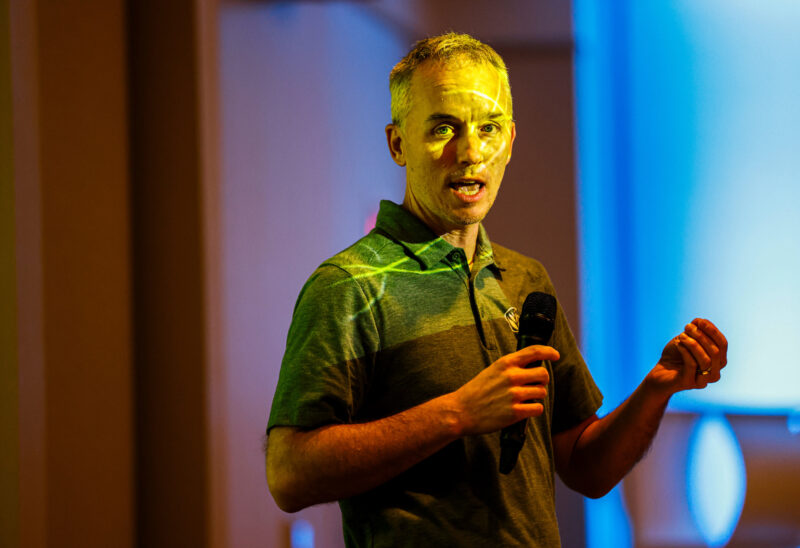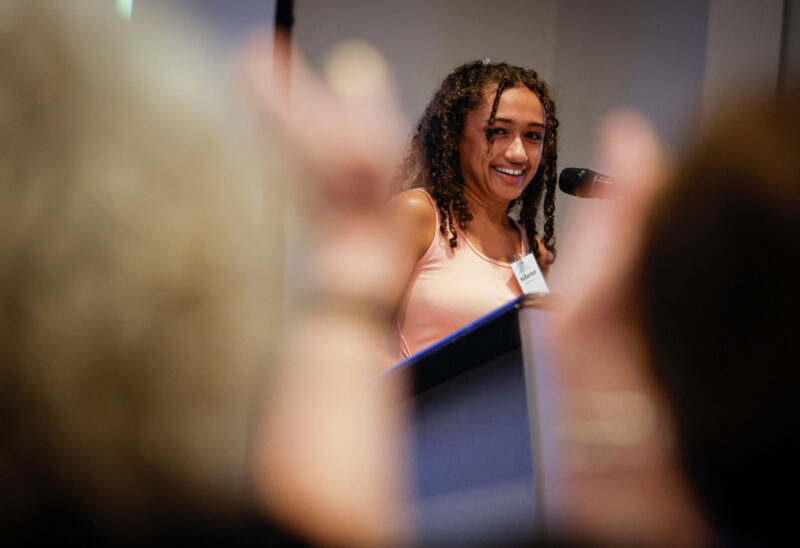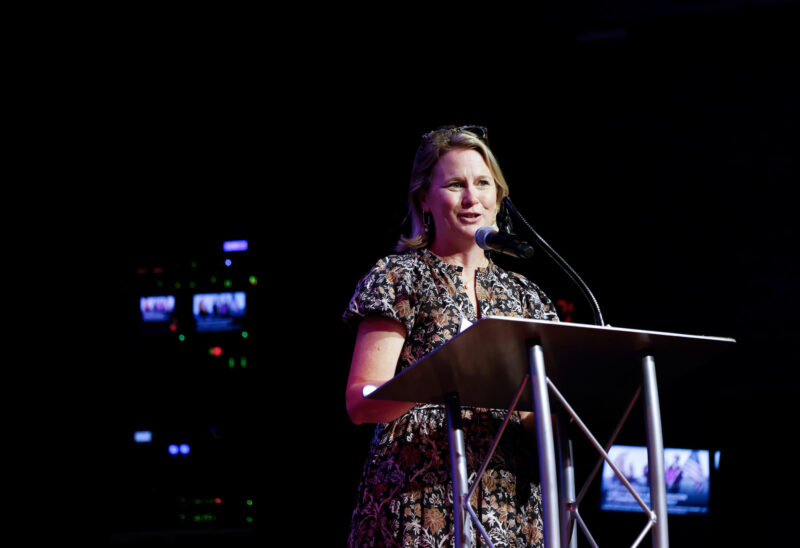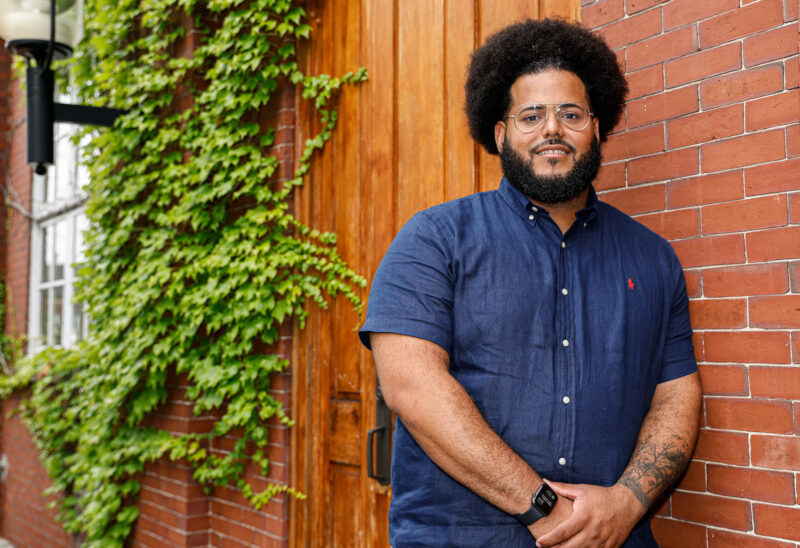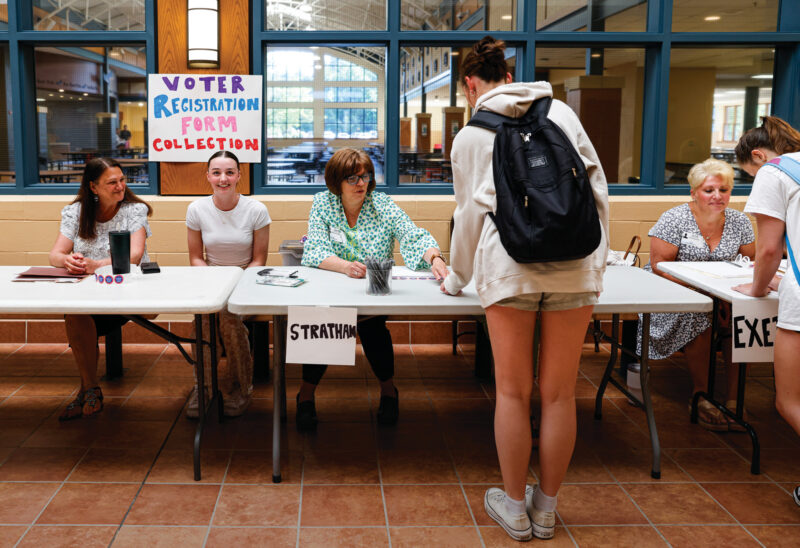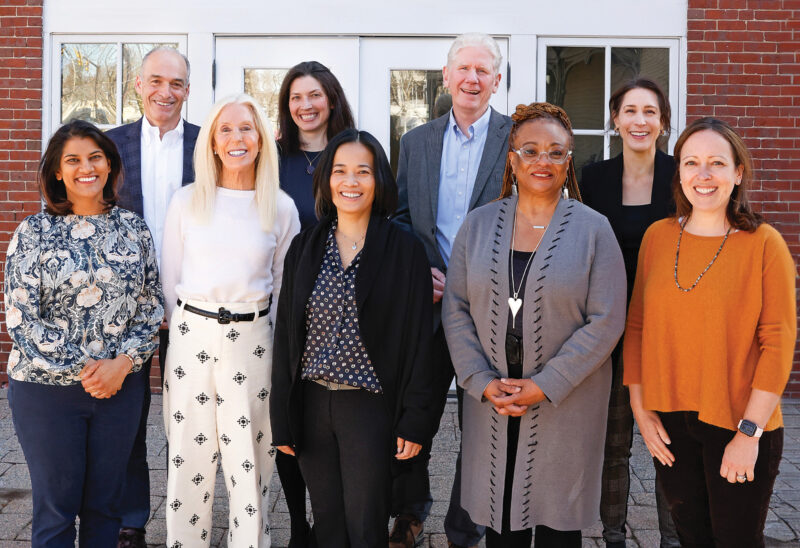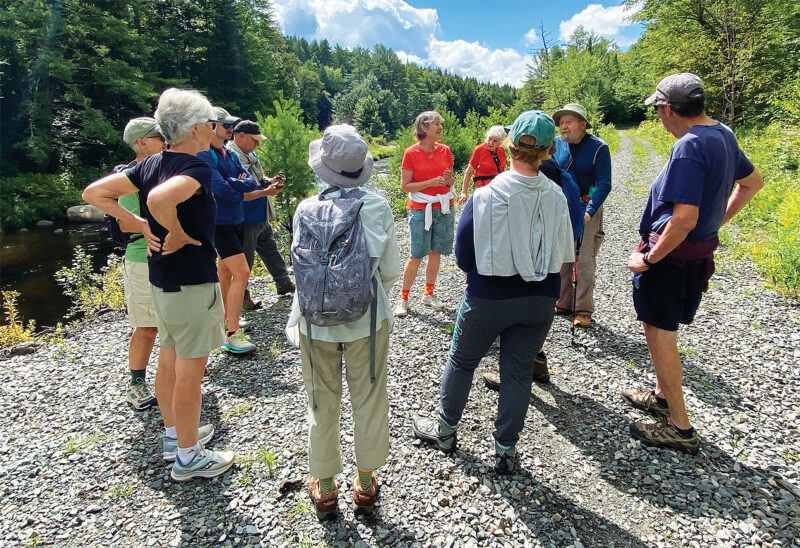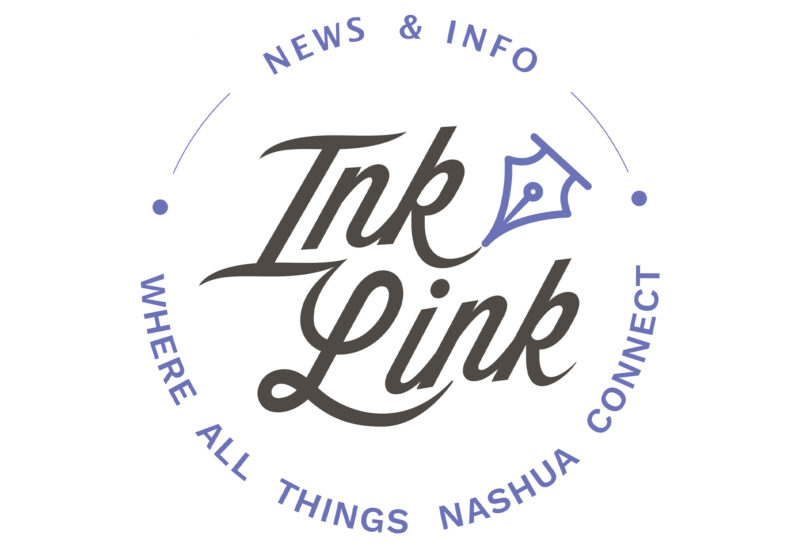Mohammed Mustak has a lot to offer. Mustak studied chemistry in his native Myanmar. He speaks four languages. He has a passion for community organizing. He works three jobs: as a medical interpreter, as a recruiter for a staffing agency and as a community health worker. He participates in Nashua’s “City Academy,” and is a leader among the ethnic Rohingya people who have been settled in Nashua by the U.S. State Department. He was recently appointed to the Nashua Board of Aldermen’s Cultural Connections Committee.
Mustak also volunteers with One Greater Nashua, a broad-based initiative to integrate New Americans into the city’s civic, social and economic fabric. One Greater Nashua is part of the Endowment for Health’s Immigrant Integration Initiative to make meaningful connections between newcomers and longtime New Hampshire residents, and help communities become more inclusive. Residents are working together to create vibrant, welcoming communities through activities to advance civic engagement and community leadership, increase economic opportunity and address anti-immigrant bias.
“They are welcoming me,” Mustak said. “We never got that chance in our country. I am working with the city, with everybody. Whoever is living in Nashua is my community.”
When people are more connected to their communities, they are healthier and better able to realize their full potential — and those communities are healthier and more economically vibrant.
“We really feel strongly that the future of New Hampshire and northern New England really depends on us creating vibrant communities rooted in welcoming,” said Kelly Laflamme, program director at the Endowment for Health.
The Immigrant Integration Initiative has efforts underway in Laconia, Nashua, Manchester and Concord. Together, the Endowment and the Foundation have made grants to fund work in each of the communities and to the nonprofit Welcoming New Hampshire to lead efforts at the state level.
“Welcoming new immigrants is fundamental to America’s core values and our state’s economic and social vitality,” said Richard Ober, president and CEO of the New Hampshire Charitable Foundation. “It is in everyone’s best interest for our newest neighbors to reach their full potential here, and that starts with feeling welcomed.”
“If we want to thrive as a state and as a community, we want new immigrants.”– Nashua Mayor Jim DonchessTweet This
Like the rest of northern New England, New Hampshire is in the midst of an unprecedented demographic shift, as a large portion of the workforce nears retirement age.
Immigrants to the state tend to be younger than New Hampshire’s native population — 67 percent of the foreign-born population is of working age, compared with less than 54 percent of native-born residents.
“We are a country founded by immigrants,” said Tracy Hatch, president of the Greater Nashua Chamber of Commerce. “From an economic perspective, we can’t succeed as a state if we don’t welcome and embrace and help newcomers to the community thrive.”
On average, foreign-born immigrants to New Hampshire have higher levels of education than U.S.-born residents. Forty percent of foreign-born residents 25 and older have a bachelor’s degree or higher, compared with 34 percent of those born in the United States.
“New immigrants contribute to the economy of any region, and the second generation, meaning the children of immigrants … tend to do really well and generate a lot of economic activity,” said Nashua Mayor Jim Donchess. “If we want to thrive as a state and as a community, we want new immigrants.”
Kyle Schneck is vice president of commercial lending at Merrimack Country Savings Bank. He sees New Americans as having great potential to help New Hampshire businesses grow and thrive.
His bank has customers across the high-tech, manufacturing, trades and health care industries.
“I have been hearing from them that what is impeding them from growth is access to a skilled workforce, dependable labor,” Schneck said. “There is an available workforce, here mainly from the immigrant population, that is really underutilized.”
The four communities that are part of the initiative are all working to bridge the gap between employers and immigrant communities.
One Greater Nashua, coordinated by the United Way of Greater Nashua, is working with the mayor’s office, chamber of commerce, schools, businesses, the city library, Leadership Greater Nashua and others. Community “navigators” help New Americans learn the ropes, leadership programs cultivate new community talent, citizenship and English-language classes and job-seeking help are offered.
New Hampshire has a long history of immigration. “Many French-Canadian people came to New Hampshire in the 19th century, but so did many other groups: Lithuanian, Polish, Irish, Greek,” Mayor Donchess points out. “And we benefitted from these past waves of immigration. Now we have a newer group of immigrants and it is part of our tradition to welcome and include these New Americans into our communities.”
He said that his city is already seeing benefits as New Americans feel more welcome. He points out that parts of the state would have seen a net population decline in recent years if not for foreign-born residents. And the millennial generation — which New Hampshire’s communities and economy need — seeks out diversity when choosing communities and jobs.
Concord, Manchester and Laconia have also established a variety of programs: From workforce development efforts to a civics academy that helps new arrivals understand how government works and microlending that helps entrepreneurial startups to a “coffee and conversation” series where new neighbors meet (including French-speaking immigrants from Congo who chat with French speakers whose families emigrated from Québec) to a New American Welcome Center in Laconia that helps new arrivals navigate the community. Concord, Nashua and Manchester have all passed “Welcoming Resolutions,” officially proclaiming those cities’ intent to embrace newcomers.
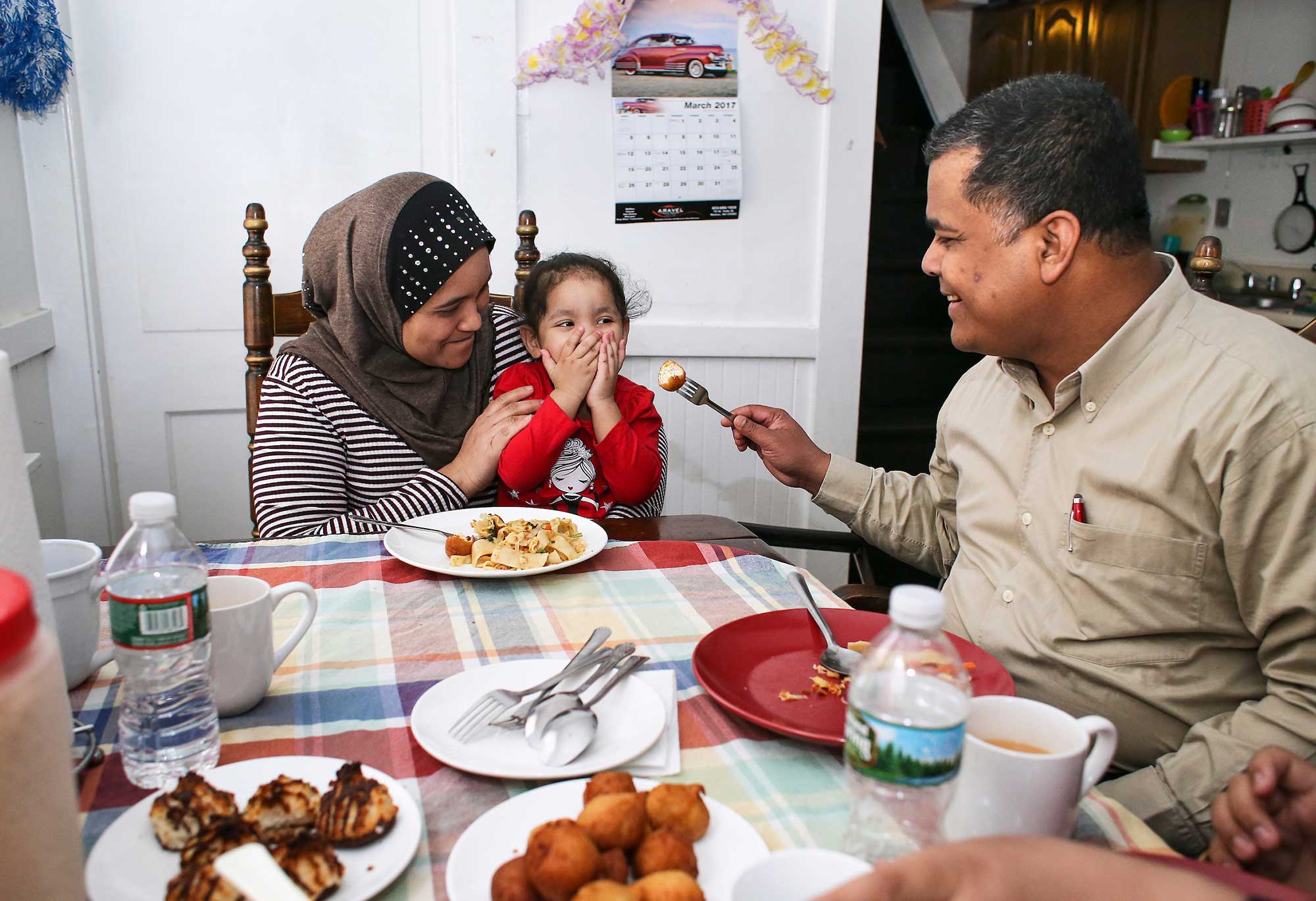
To the Mustak family, the concept of being welcomed is new.
Mustak’s people, the Rohingya, are stateless. Mustak and his family were denied citizenship in their native Myanmar. He was allowed to go to school — to a point. When he went to take the final exam to graduate from college so that he could go on to medical school, he said, officials demanded proof of his ethnicity. He was not allowed to graduate, and was jailed for traveling the short distance to school. When he got out of jail, he fled to Malaysia, where the Rohingya are also not granted citizenship or allowed to attend public schools.
He applied for refugee status and, after an extensive process, was accepted to come to the United States. He wants his children to be able to reach their full potential, and to become contributing adults in their American community.
“I wish their success and dignity and good hearts,” he said.
His son Rabiul, now in fifth grade, gets good grades, and “he has good relationships with his teachers. He has good character.” Rabiul wants to be a doctor.
Mustak’s daughter Alisha, born here two years ago, is the first official citizen — of any country — in the Mustak family. Because these children will grow up connected to their community, they will have greater opportunity to thrive.
“Here, we are welcome to learn,” Mustak said. “If you want to be, you will become that doctor, or police officer.”
“This is opportunity country.”
View the Endowment for Health’s ‘We Are New Hampshire’ video about the Immigrant Integration Initiative:
Connect with a welcoming community near you:
- Welcoming New Hampshire (state‐wide): Eva Castillo (rpnfgvyyb@zvenpbnyvgvba.bet)
- Welcoming Concord: Jim Snodgrass at Second Start (wfabqtenff@frpbaq‐fgneg.bet)
- Welcoming Manchester: Lindsey Shaffer at Organization for Immigrant and Refugee Success (yfunssre@ershtrrfhpprff.bet)
- One Greater Nashua: Liz Fitzgerald at the United Way of Greater Nashua (ysvgmtrenyq@havgrqjnlanfuhn.bet)
- Laconia: Kate Bruchacova at Lakes Region Partnership for Public Health (xoehpunpbin@yeccu.bet)

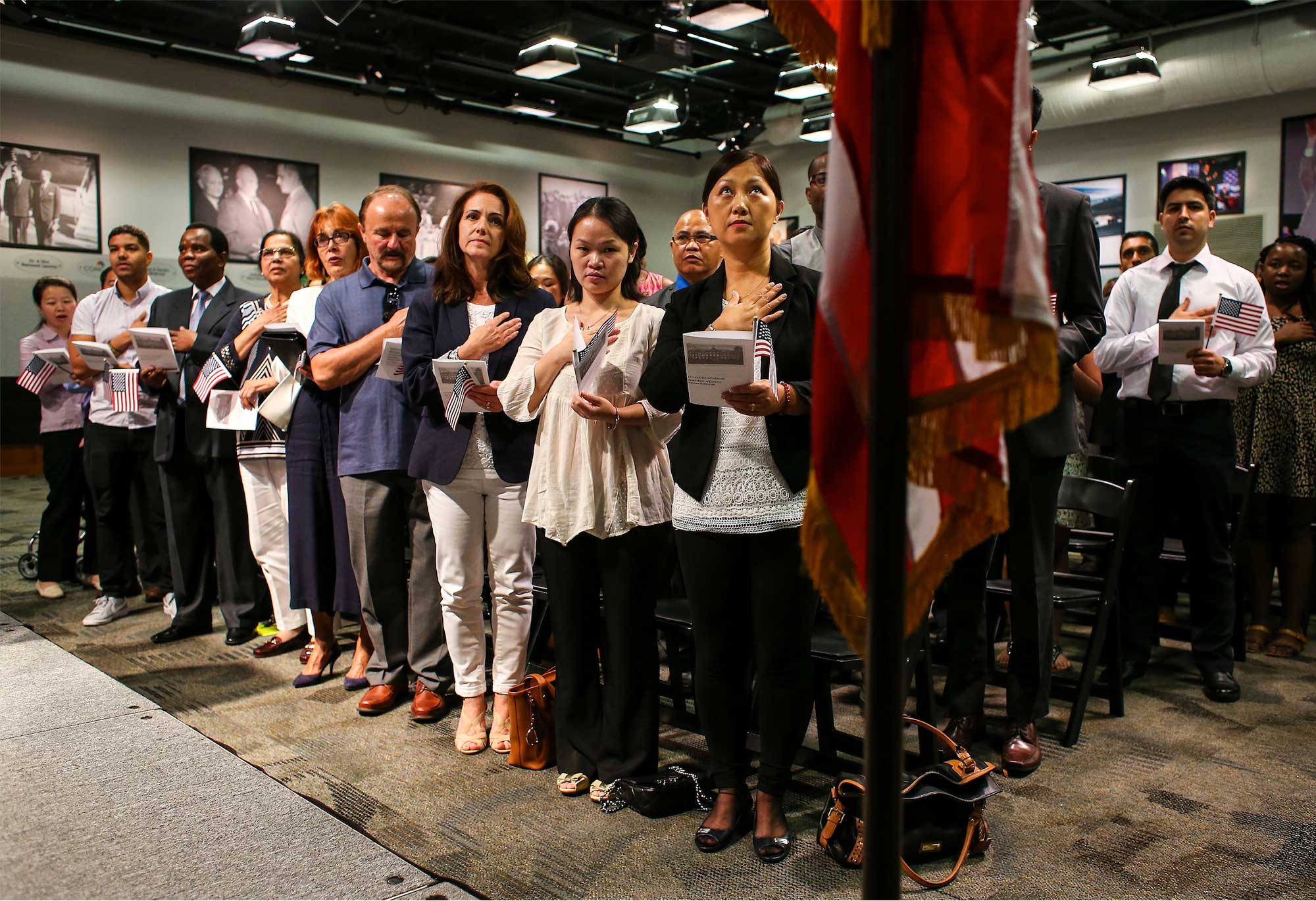






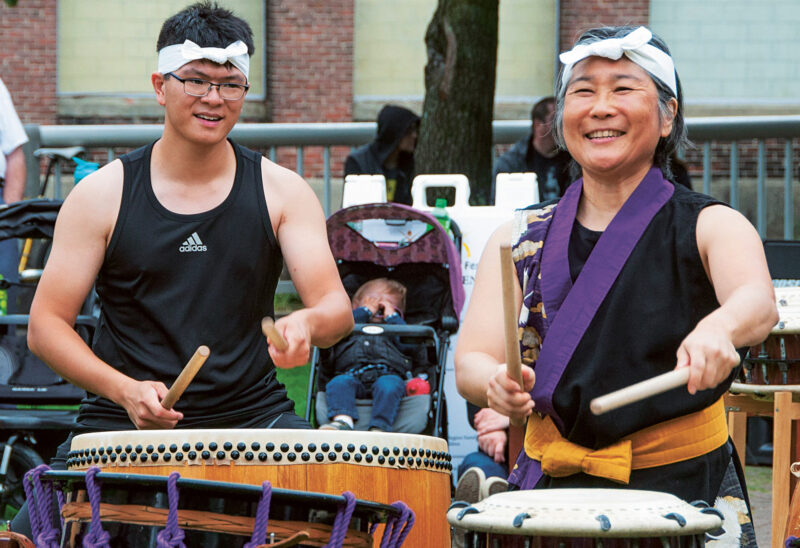
![Charitable Foundation President Dick Ober [Photo by Cheryl Senter]](https://www.nhcf.org/wp-content/uploads/2023/12/dick-ober-purpose-fall-winter-2023-800x548.jpg)

